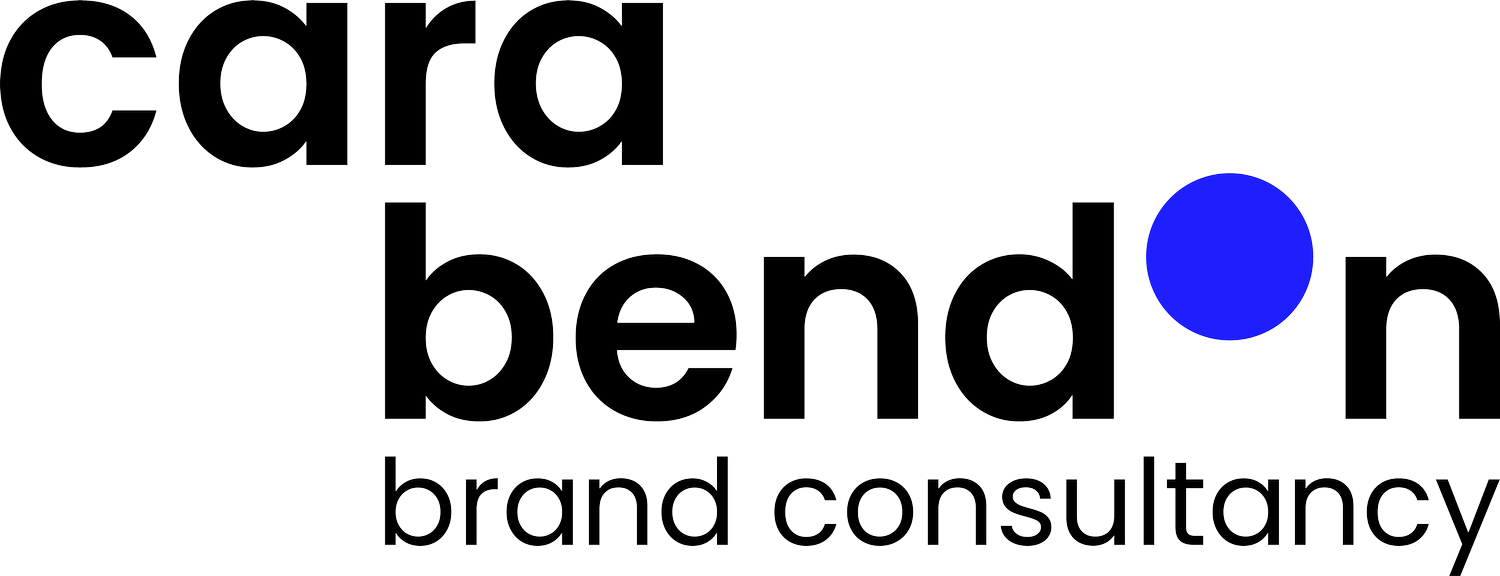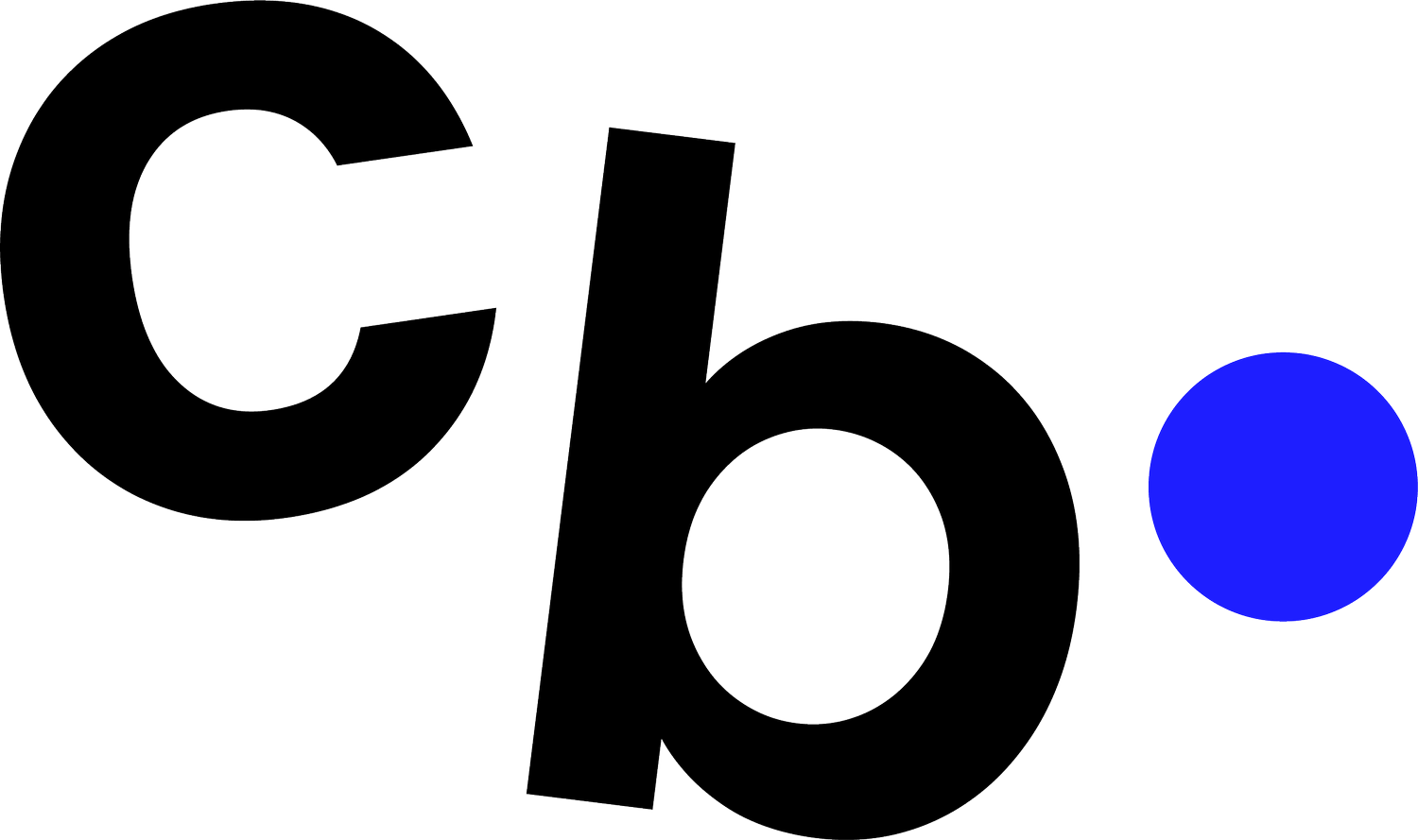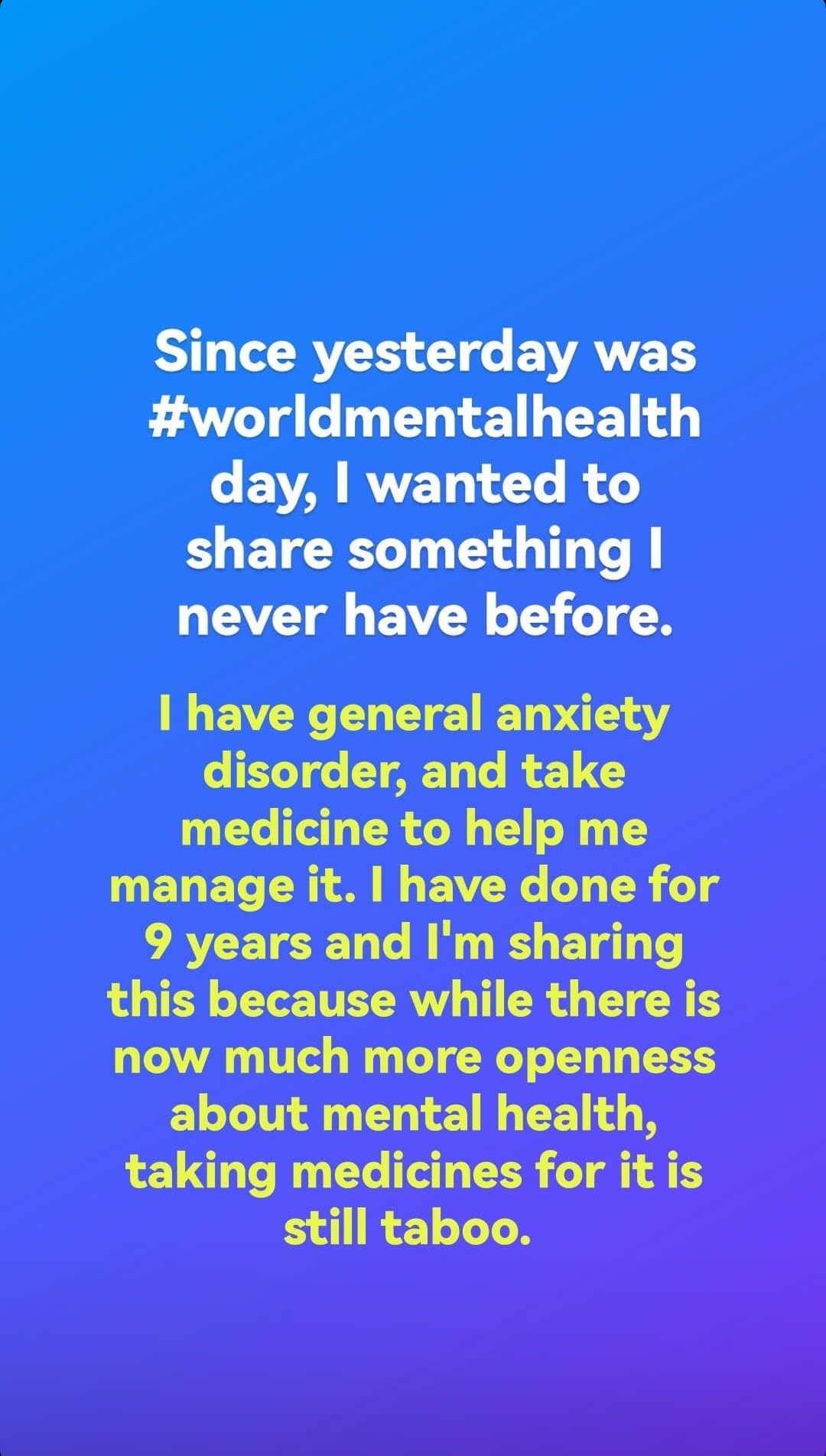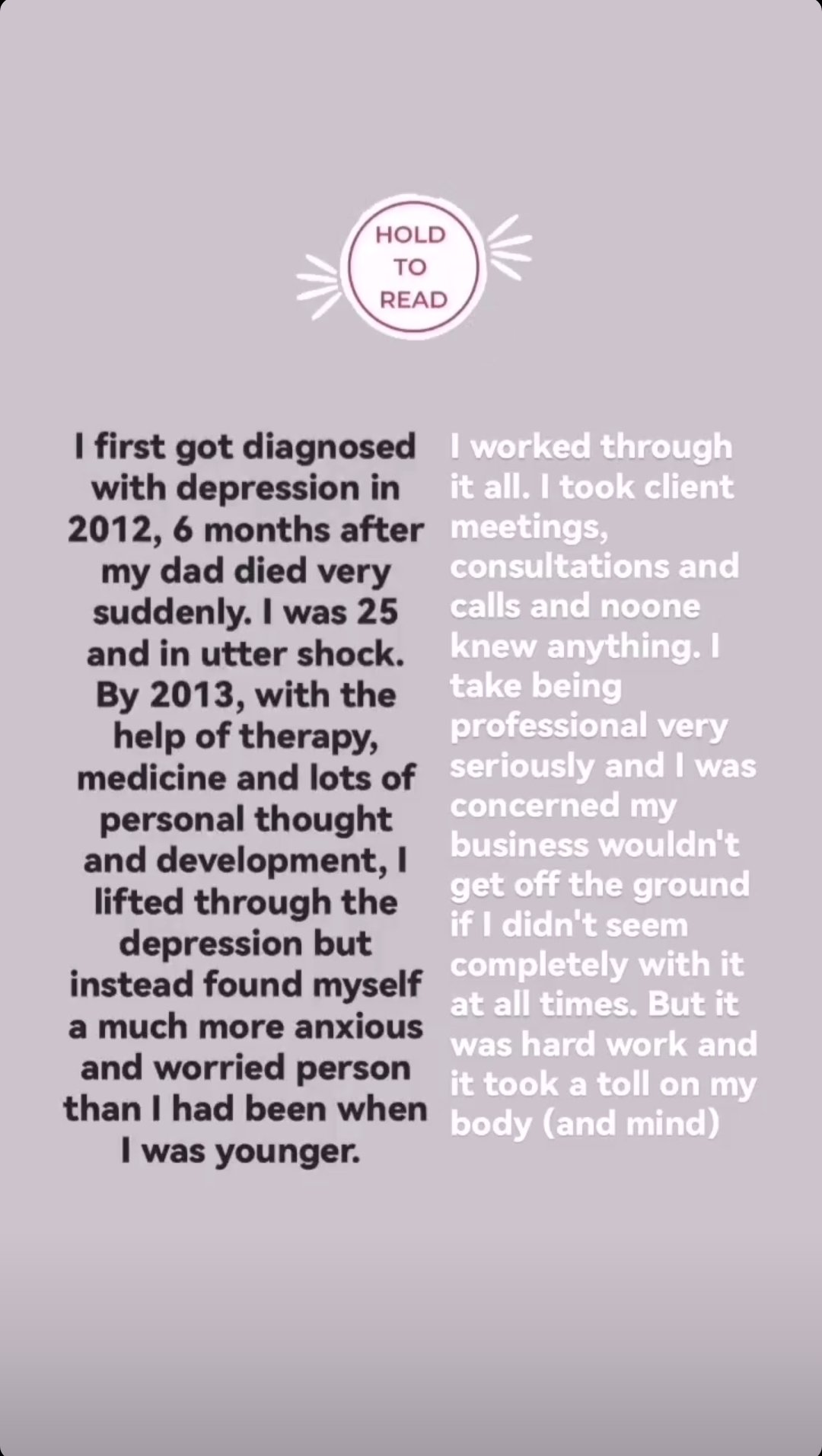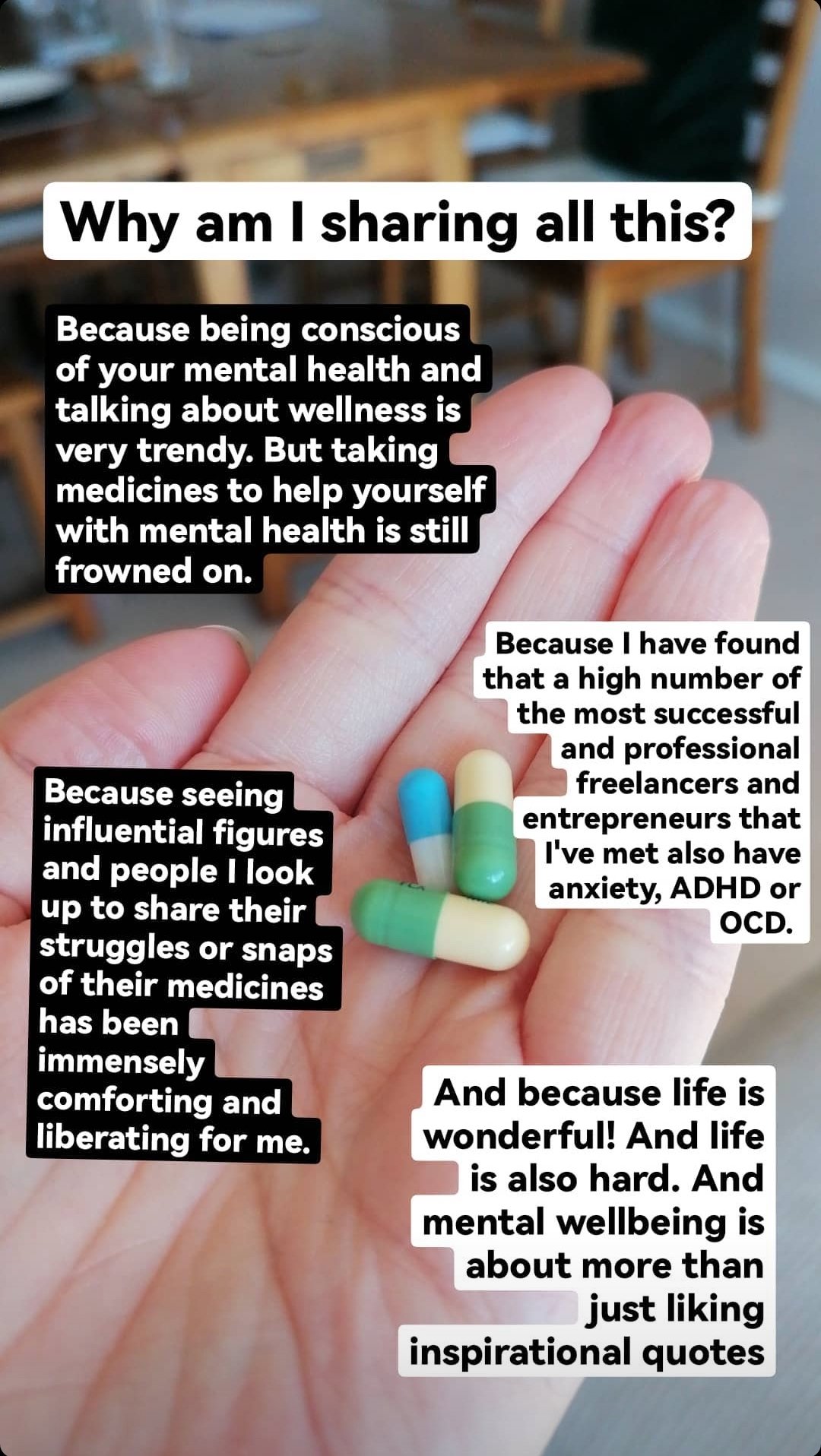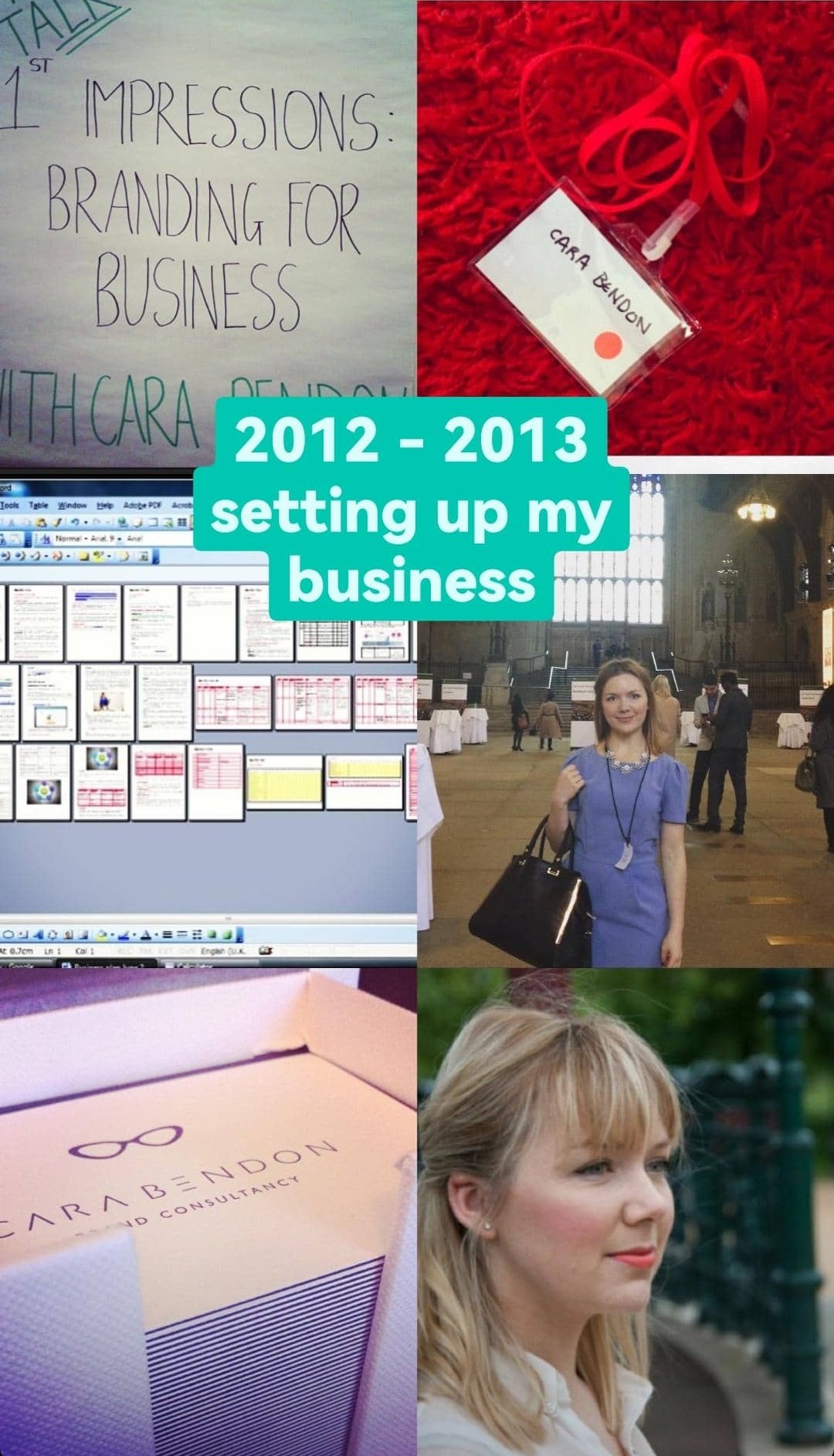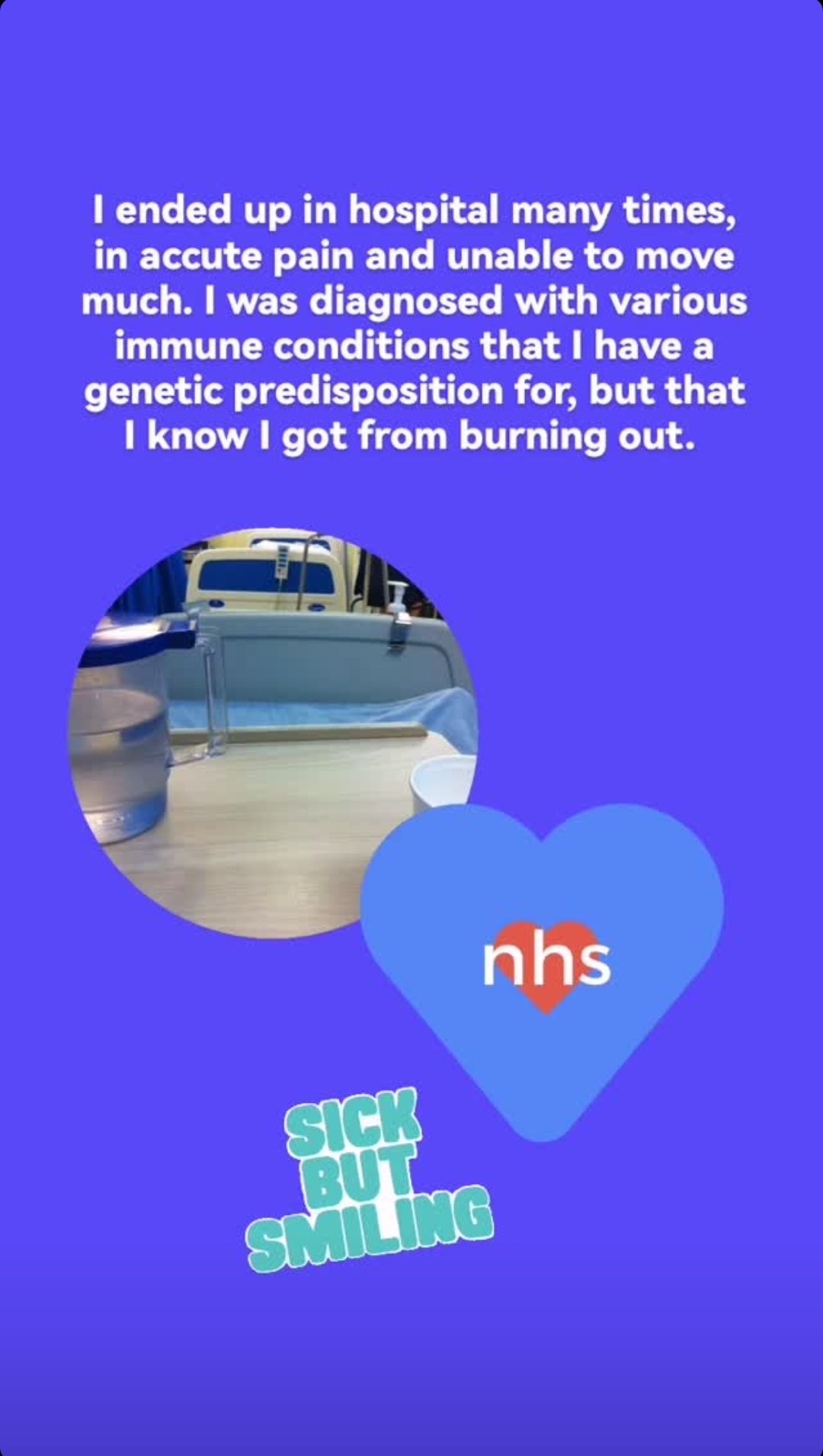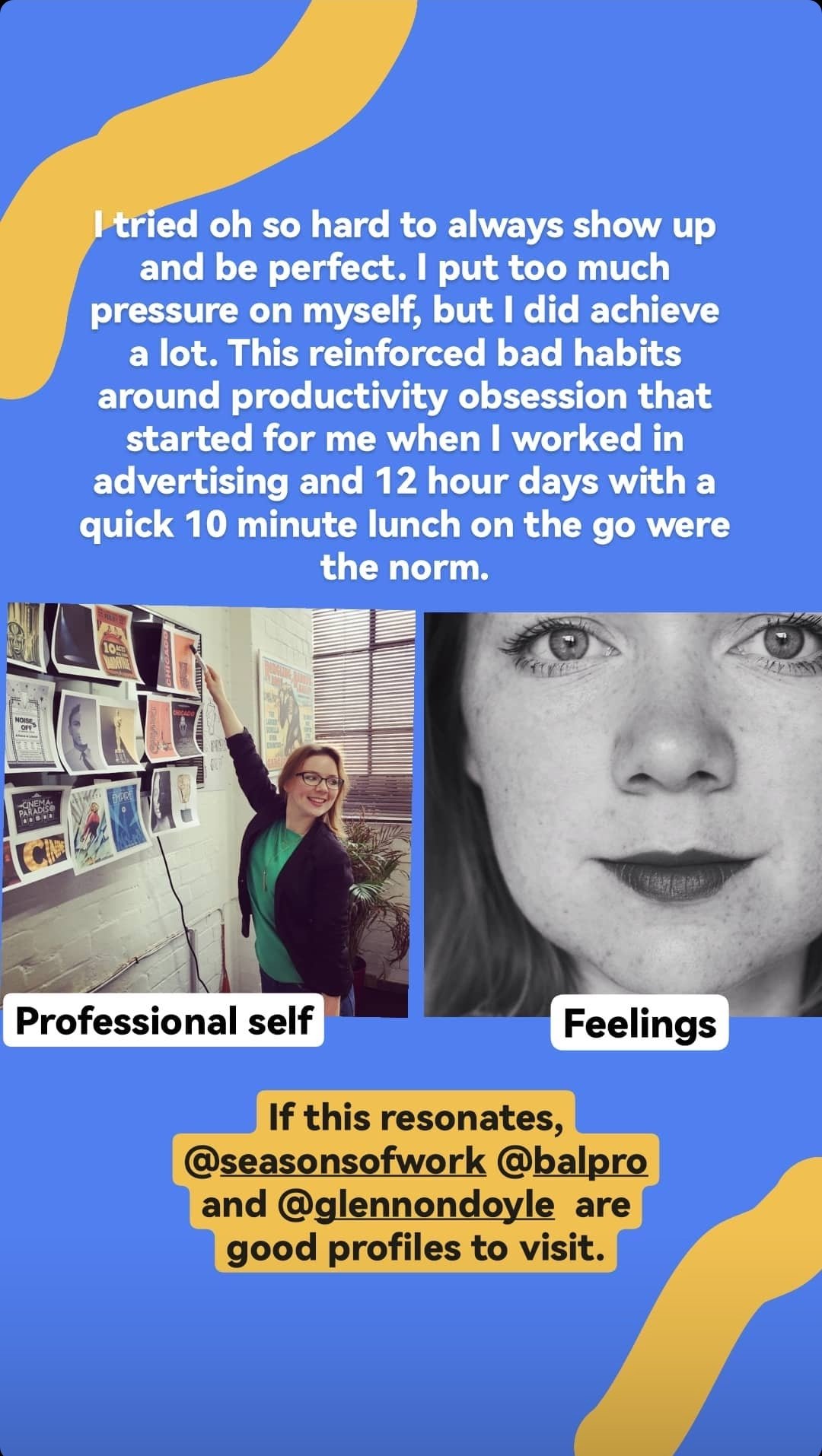I Told the World About my Anxiety, and this is What Happened
Last October, seeing that it was World Mental Health Day from my morning Instagram scroll, I decided - on a complete whim - to tell all my followers and professional network that I have anxiety, and that I take medicine for it. Something I’d been masking for 9 years so as not to seem unprofessional.
I saw a post on Instagram some months ago of a woman holding a small white pill in the palm of her hand. That woman was singer Sara Bareilles, and in this post she shared that after 20 years of resisting antidepressants, she had conceded and now felt the heavy cloud begin to lift. As someone who takes medicine for my own mental health, I really admired her openness. In an era of loud wellbeing messaging where we are encouraged to practice self-care but taking medicines for mental health is still stigmatised, posts like this are significant.
Scroll through to see the story I posted to Instagram
A welcome trickle of love and support came through in my DMs as soon as I posted, which reassured me that my confession hadn’t been perceived as unprofessional or off-brand. I received lots of supportive messages, and many friends revealed they were also going through something. I could feel the catharsis in my inbox - I loved that I’d created a safe space for people to share with me. And yet as I saw exactly how many people had viewed my story, the fear crept in. Would some people think I was a liability now? Would potential clients be put off working with me? I started worrying that I had overshared (in my post I had admitted to having had physical health problems and depression after multiple burnouts and my dad’s death).
Despite having a wobble about whether to delete my post, I knew sharing it was the right thing to do. Then I realised there was something else triggering my discomfort – people kept calling me brave.
I knew it was intended with love and admiration, but something about the word brave didn’t sit right – brave suggests that someone did something you yourself would not be prepared to do. The definition of brave is “showing no fear of dangerous or difficult things” and so the use of the word implies that I took a risk – that by sharing that you take medicine for your mental health, you do still risk judgement.
While it did take me courage to overcome my concerns and share my anxiety online, I would love a society in which sharing in this way was more commonplace and didn’t feel like a personal risk. We should applaud and thank those who do open up and share, but personally, I’d rather not be called brave.
Fluoxetine is just one of my medicines; yoga, therapy, mindfulness, swimming, painting, spending time in nature, petting animals, tending to houseplants and watching period dramas are all medicines of mine. Our feeds are full of posts encouraging self-care, compassion and kindness, morning routines, stress relieving stretches and healing meals, and I’m all for that, but we need to extend this conversation to prescription medicines. A buddha bowl and morning yoga are a great step towards taking care of ourselves, but for many of us it won’t be enough at one point or other in our lives and denying ourselves from taking antidepressants is frankly closer to self-harm that self-care. I’m not saying everyone should immediately get a prescription, I’m saying that if you do, you have not failed.
Over the years I’ve learnt to see that it is not a sad or shameful thing that I take antidepressants. I may come off them, I may not, and that’s absolutely fine. We live in a fast-paced and demanding society, where we are expected to hold down full time jobs, work out three times a week, meal prep, see friends, have hobbies, be on top of world affairs, look after our skin, recycle and reduce our carbon impact. It can be a lot. And on top of all this we’ve survived widespread fear and uncertainty, global tragedy, isolation and political turmoil like never before over these last 2.5 years. Mental health is health and antidepressants are a form of health care. Imagine asking someone whether they really need their daily insulin, blood pressure tablets or inhaler or whether they could try harder to through without.
Antidepressants come in many forms, and I am by no means an expert, but here’s some quick myth busting. Antidepressants aren’t addictive, you do have to gradually go on or come off them, but that’s the same as with anything that affects your mood or hormones, like the pill. They don’t ‘make’ you happy, they just help your range of emotion stay within a central zone, rather than being ecstatic or depressed. And finally, it’s not ‘the easy way out’ – there’s no medal for fighting your demons alone, and actually doctors will usually insist you do a course of therapy before considering antidepressants.
I remember feeling heavy shame when I first started taking antidepressants – the name alone was enough to make me feel down. However, I run a business in which I manage multiple designers and juggle several clients. I know many other very successful entrepreneurs and high achievers who have learned to work with their anxiety, depression, ADHD, OCD etc. I shared that I take medicine precisely to prove that taking it isn’t a failure. I hope that if you are someone who has been struggling, reading this will help you and if you do take medicines, I’d love for you to be completely ok about that.
